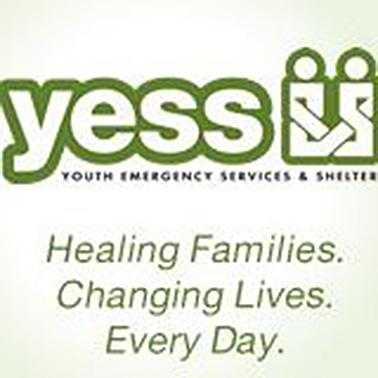Safe havens important to struggling youths

Youth Emergency Services and Shelter Logo
April 16, 2013
As the economy worsens, poverty rates rise and so does the number of children who don’t have enough to eat or a safe place to stay.
In Iowa, this is a reality for 17 percent of children who live under the poverty line. According to the U.S. Census, since 2007, poverty rates among child-bearing families have risen in the state of Iowa.
For some children, the only welcoming, safe place they know is their local school.
Rafe Esquith, a teacher from inner-city Los Angeles, has had several of his students go on to the top colleges in the nation. The secret to his success in one of the most impoverished neighborhoods, was creating a “safe haven” where kids felt welcome and wanted to come.
Esquith spoke at an event last week for the Youth Emergency Shelter and Services of Iowa’s annual Duck Derby Fundraiser, and urged Iowan educators to create safe havens.
Youth Shelter & Services, Inc., a nonprofit organization, supports the education, treatment and residential services offered to children, youth and families. They currently have five locations in Ames and have programs in the Ames Community School District.
“YSS is one of the largest in the state with 30 major programs that are all inclusive,” said Eric Carlson, media relations for Youth Shelter and Services, Inc.
Youth Shelter and Services, Inc. has after-school programs and sponsors the Great Relationships in Pairs mentoring program.
Many schools in Iowa are trying to create safe havens for their students through programs such as GRIP. Jennifer Staller, Des Moines Public Schools, said Des Moines offers many programs to benefit children living in poverty.
Some of the programs include free and reduced lunch during the school year and summer, along with after school programs and reduced book fees.
For homeless students, Des Moines Schools offers to bus them to their current school regardless of where they are living. Staller said this is extremely beneficial because many homeless students move frequently. This eliminates the constant moving of schools as well.
Des Moines Public Schools also pair up with the local food bank for their program, Backpack Buddies, Staller said. Backpack Buddies provides students with backpacks full of food on Fridays for the weekend.
“[Backpack Buddies] allows them to know they have at least something between Friday at lunch and Monday at breakfast,” Staller said.
But the biggest things for the kids aren’t these programs, it’s the welcoming environment, Staller said.
“We don’t judge them for what they don’t have. They can feel secure and want to come to school.”
















